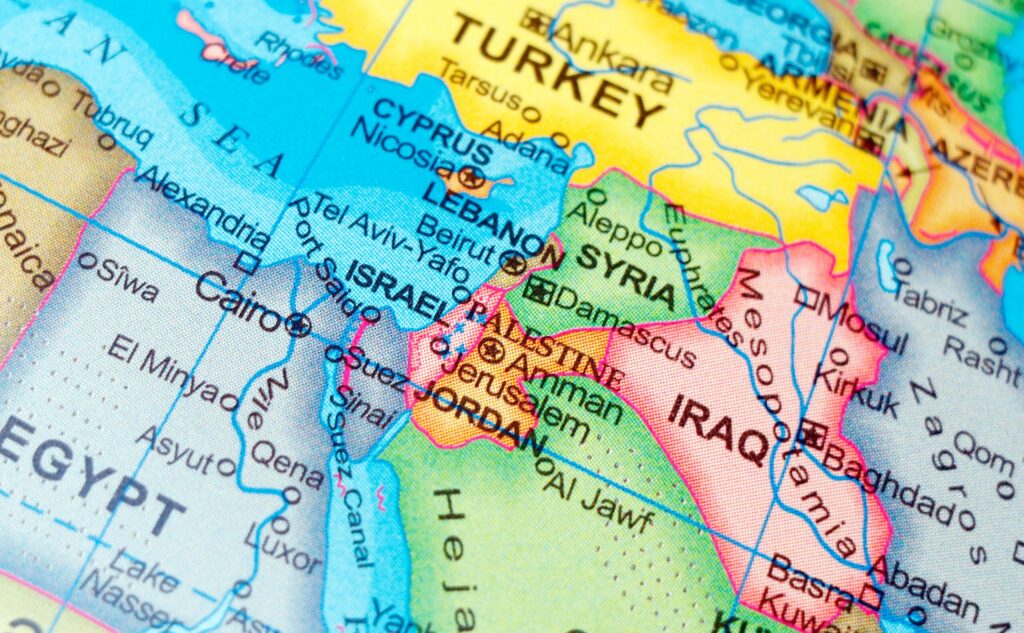UPDATES
Assad’s carte blanche is hurting Syrians
Jul 8, 2011 | Daniel Meyerowitz-Katz

While ruminating yesterday on the US’s decision to intervene in Libya, Middle East scholar Barry Rubin gave several insights as to why the West would choose Libya to attack rather than Syria. The assessement, unfortunately, is not particularly flattering for our leaders:
I would suggest that the actual main reasons revolve around ideology. The administration is now obsessed with proving that it supports reform and democracy, having adopted a whole interpretation of the Middle East that accords with this concept. Ironically, the administration is doing this only after that view has been disproven by events, including the experiences of its predecessor. Remarkably, the very approach used by the Obama Administration is one that its current leaders spent years ridiculing.
… The other key element in its thinking is that the adminstration expected the Libya operation would be an easy one. By the way, that”s a key reason why the U.S. government was so quick to intervene militarily in Libya and so slow to even intervene verbally in Iran and Syria. Qadhafi must be unpopular, the “people” wouldn’t want him, so he’d be quickly overthrown. Having abandoned the national interests concept, the Obama Administration really didn’t think through what might replace Qadhafi, just as it hasn’t factored in that point elsewhere.
Unfortunately, it seems that Syria’s Bashar al-Assad has been taking cues from the international community that he is not at risk of any military intervention. To illustrate this, Professor Hilal Khashan from the American University of Beirut has written in the Middle East Quarterly, extensively detailing internal attitudes in Syria over recent weeks.
The fact of the matter is that despite his inner insecurity, Assad seems to have concluded that the Western intervention in Libya is not repeatable in the Syrian context, apparently drawing some comfort from Hillary Clinton’s assurance after the killing of dozens of protesters in the northern port city of Latakia that “the USA will not interfere in Syria in the way it has in Libya.” Moreover, judging by his defiant speech of March 30, in which he laid the blame for the protests on “saboteurs [who] tried to undermine and divide Syria and push an Israeli agenda,” Assad seems to believe that he has received a new lease to rule Syria as he sees fit whereby “reforms are not a wave that we ride, and we will not proceed hastily.”
Meanwhile, Assad continues to blame the violence on anyone but himself.
Accordingly, the government has repeatedly claimed that armed gangs keep opening fire on protesters, army troops, and security forces. Oddly enough, these armed gangs have conspicuously failed to open fire on demonstrators and security personnel when regime-organized, pro-Assad rallies caused traffic congestion in major Syrian cities. As Anis Karam, the Lebanese chairperson of the American-Middle Eastern Congregation for Freedom and Democracy, put it, the regime has been “labeling demonstrators as outlaws to justify its mass killings.”
The deep irony of the whole sitution is that, unlike Libya, intervening in Syria would have innumerable strategic benefits for the US and Australia, as well as Lebanon, Israel and most other countries in the region. As Jerusalem Post columnist Caroline Glick pointed out this morning:
If Assad falls, Hezbollah will lose its logistical supply line from Iran. Hezbollah will be so busy fending off challenges from no-longer-daunted Lebanese Sunnis empowered by their Syrian brethren, that its operatives will be less available to kill Iranian protesters. Fearing insubordination in the ranks of its military and Revolutionary Guards, in 2009 the regime reportedly brought Hezbollah operatives to Iran to kill anti-regime demonstrators.
Assad’s fall would break the “pro-Iran axis” of Iran, Syria and Hizballah – meaning that the threat to Lebanese democracy posed by the de facto Hizballah state in the south would be greatly diminished, as would chances of a repeated conflict with Israel. Similarly, Iran would have lost a significant ally and supporter, adding to the worries of the already struggling regime.
Most importantly, Assad’s fall would mean respite for the people of Syria and end the cries of suffering that are being heard throughout the world, despite the best efforts of the ruling regime. An example of this is the CNN report (below) on doctors who are being forced to treat Syrian dissenters in unsanitary clandestine hospitals.
Video via The Huffington Post
Tags: Iran











